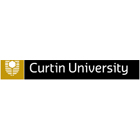Bachelor of Science (Science) – Information and Communication Technology
Bachelor of Science (Science) – Information and Communication Technology
In this course you will learn how modern computer systems connect, operate and are programmed. You’ll learn the setup and maintenance of wired and wireless networks, the configuration and hardening of networked computers, and general programming. You’ll gain the expertise to improve the efficiency of computer networks and solve network…
Categories
COURSE DESCRIPTION
In this course you will learn how modern computer systems connect, operate and are programmed. You’ll learn the setup and maintenance of wired and wireless networks, the configuration and hardening of networked computers, and general programming.
You’ll gain the expertise to improve the efficiency of computer networks and solve network issues – particularly those relevant to small and medium enterprises (SMEs) – and the automation and process control that underpin Internet of Things (IoT) innovations.
The skills you’ll gain are ideal for SMEs that require agile professional staff with discipline expertise and network support skills. Combining this course with a strong industry-related discipline will give you the expertise to customise networks and develop proprietary industry and organisational systems.
Careers
• ICT specialist
• Computer programmer
• Database design
• Network technician
• Software engineer/developer
• IoT (internet of things) engineer
• IT language development
• Computer education
Industries
• Applications and software development
• Business and finance
• Cybersecurity
• Network engineering
• Education
What you’ll learn
• Have demonstrated knowledge and understanding in the Information and Communication Technology that is typically at a level that, whilst supported by advanced textbooks, includes some aspects that will be informed by knowledge of the forefront of Information and Communication Technology, GC1
• Can apply their knowledge and understanding in a manner that indicates a professional approach to Information and Communication Technology , and have competencies typically demonstrated through devising and sustaining arguments (to both specialist and non-specialist audiences) and solving problems within Information and Communication Technology, GC2
• Understand the constructs of the scientific method and apply these principles in Information Communication Technology using digital technologies, GC3.
REQUIREMENTS
You’re considered a high school leaver if you: Completed year 12 in Australia or overseas in the past two years, or Completed TAFE or VET studies in the past two years. English language requirements: IELTS (International English Language Testing System) – Listening, Reading, Writing, and Speaking – 6.0; Overall band score 6.0.
EDUCATIONAL INSTITUTION
Curtin University is Western Australia’s largest and most culturally diverse university with Australia’s third largest international student population. Around 60,000 students from more than 130 countries study a Curtin degree, at locations including Perth, Margaret River, Kalgoorlie, Sydney, Malaysia and Singapore. Our cultural diversity adds a rich and valuable dimension to the campus atmosphere, preparing all graduates to live and work effectively in an increasingly global environment. We offer a range of industry-aligned undergraduate and postgraduate courses in business, humanities, health, engineering and related sciences. We also have a long-standing focus on Aboriginal and Torres Strait Islander education and culture, supported by our Centre for Aboriginal Studies.Curtin is widely recognised for its practical research that is focused on solving timely, real-world problems. In recent years our research activity has grown significantly, driving our rapid rise up the international university rankings.As a university that never settles, we will continue to develop existing partnerships and establish new ones in areas relevant to our research and teaching.

